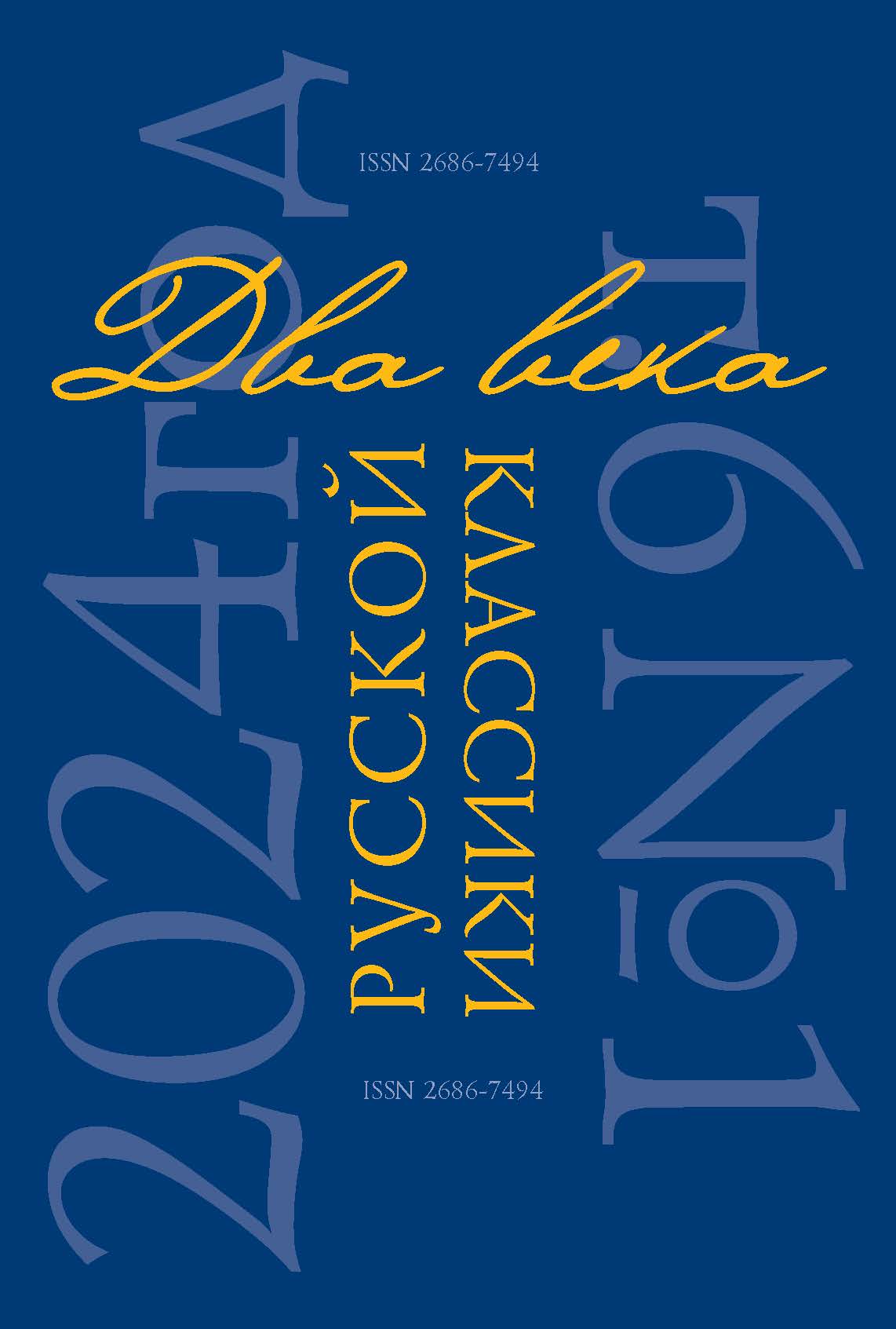Abstract: The article discusses the poetics of the comic in the artistic depiction of the nearchurch environment by Nikolai Leskov. The author of the article focuses on travel notes “Monastic Islands on Lake Ladoga” (1873). Associated with the genre of pious walking, notes concentrate various types of comic, which makes the work contrast with respect to the existing literary tradition. The comparison of the original newspaper version of “The Monastic Islands” with the final text allows one to conclude that Nikolai Leskov deliberately enhanced the comic tone of the essay when processing it for book publication. An examination of “The Monastic Islands” in the context of the apologetic literature on Isle of Valaam mentioned in them provides material for a real commentary on travel notes, revealing hints of the author who is polemicising with liberal journalism. An analysis of “The Monastic Islands” from a chosen perspective allows us to build a typology of humour and comic: a mocking laugh of an atheist, “vulgar laughter” of the crowd, comic decline of religious hypocrisy, superstitious myth-making, cutesy feminine piety, as well as linguistic comic arising from the use of colloquialism, church-slavicism and biblicism. On the basis of the complementarity of the voices of the main and secondary narrators, comic characters of the near-church environment are created including a “terrorising hypocrite”; an exalted lady of society, arbitrarily combining spiritualism with Christianity; “unwilling pilgrim”; a superstitional simple involved in the process of “religious” legend-making. The plot-chronotopic connections of the “Monastic Islands” and “The Enchanted Wanderer” printed after them explain the reasons for the decrease in the comic severity of the essay as the narrative moves to the ending.
References
Averincev S. S. Bahtin i russkoe otnoshenie k smehu [Bakhtin and the Russian attitude to laughter]. Ot mifa k literature: Sbornik v chest' 75-letija E. M. Meletinskogo [From myth to literature: A collection in honor of the 75-th anniversary of E. M. Meletinsky]. Moscow, Russian State University for the Humanities Publ., 1993, pp. 341–345. (In Russ.)
Ahmatova A. A. Poslednjaja skazka Pushkina [The Last Tale of Pushkin]. Anna Ahmatova o Pushkine. Stat'i i zametki [Anna Akhmatova about Pushkin. Articles and notes]. Moscow, Kniga Publ., 1989, 368 p. (In Russ.)
Valaamskij monastyr'. Opisanie Valaamskogo monastyrja i podvizhnikov ego [Valaam Monastery. Description of the Valaam Monastery and its ascetics]. St. Petersburg, 1864, 289 р. (In Russ.)
Dolgova E. V. Dva vzgljada na “Severnyj Afon” (A. N. Murav'ev i N. S. Leskov) [Two views on “North Athos” (A. N. Muravyov and N. S. Leskov)]. Hristianstvo i russkaja literatura [Christianity and Russian literature]. St. Petersburg, Science Publ., 2002, vol. 4, рр. 292–299. (In Russ.)
Leskov N. S. Polnoe sobranie sochinenij [Complete set of works]. Vol. 12. Moscow, Terra Publ, 2014, 541 p. (In Russ.)
Leskov N.S. Sobranie sochinenij [Collected works]: in 11 vols. Vol. 11, Moscow, GIHL Publ., 1958, 861 р. (In Russ.)
Makarova E. A. Tvorcheskoe “palomnichestvo” N. S. Leskova [Creative “pilgrimage” of N. S. Leskov]. Pravoslavnye duhovno-nravstvennye idealy i tradicii – opora rossijskogo obshhestva i gosudarstvennosti [Orthodox spiritual and moral ideals and traditions are the pillar of Russian society and statehood]. Tomsk, Tomsk Center for Scientific and Technical Information Publ., 2015, рр. 28–33. (In Russ.)
Pinskij L. E. Jumor [Humor]. Kratkaja literaturnaja jenciklopedija [Brief Literary Encyclopedia]. Moscow, Sov. encikl. Publ., Vol. 8, 1975, col. 1012–1018. (In Russ.)
Potebnja A. A. Iz zapisok po teorii slovesnosti [From notes on the theory of literature]. Moscow, Direkt-Media Publ., 2011, 100 р. (In Russ.)
Pushkin A. S. O predislovii g-na Lemonte k perevodu basen I. A. Krylova [About the preface by Mr. Lemonte to the translation of fables I. A. Krylov]. Polnoe sobranie sochinenij [Complete Works] in 10 vols, vol. 6, Moscow, GIHL Publ., 1959–1962, рр. 11–15. (In Russ.)
Starygina N. N. “Monasheskie ostrova na Ladozhskom ozere” N. S. Leskova (zhanr i kompozicija) [Monastic Islands on Lake Ladoga” by N. S. Leskov (genre and composition)]. Zhanr i kompozicija literaturnogo proizvedenija [Genre and composition of a literary work]. Petrozavodsk, Petrozavodsk. state univ. Publ., 1986, рр. 11–15. (In Russ.)
Stolyarova I.V. Na puti k preobrazheniyu: Chelovek v proze N.S.Leskova [On the way to transformation: The man in the prose of N.S. Leskov]. St. Petersburg. state univ. Publ., 2012, 325 р. (In Russ.)
Tunimanov V. A. Valaam v tvorchestve N. S. Leskova [Valaam in the work of N. S. Leskov]. Тunimanov V. A. Labirint sceplenij [Labyrinth of couplings]. St. Petersburg, Pushkin House Publ., 2013, pp. 330–347. (In Russ.)









